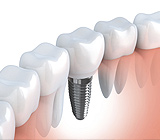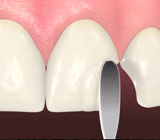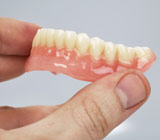 For years, even as tobacco use began to decline and disappear in most settings, professional baseball seemed one of the few exceptions. Now, the tide is finally turning. Recently, the legendary right-hand pitcher Curt Schilling revealed that he had been treated for oral cancer — and said that his chewing tobacco habit was to blame. “I’ll go to my grave believing that was why I got [cancer],” Schilling told the Boston Globe.
For years, even as tobacco use began to decline and disappear in most settings, professional baseball seemed one of the few exceptions. Now, the tide is finally turning. Recently, the legendary right-hand pitcher Curt Schilling revealed that he had been treated for oral cancer — and said that his chewing tobacco habit was to blame. “I’ll go to my grave believing that was why I got [cancer],” Schilling told the Boston Globe.
Schilling isn’t the only former player whose oral cancer is blamed on smokeless tobacco. Tony Gwynn, Hall of Famer and beloved coach, recently passed away from oral cancer at the age of 54. His death led to players pledging to give up the habit. But many still use “dip” or “snuff,” thinking perhaps it’s not so bad after all.
In fact, nothing could be further from the truth. With nicotine as its active ingredient, chewing tobacco can be just as addictive as cigarettes. Not only is nicotine addictive, it also increases heart rate and blood pressure, constricts the arteries, and affects the body in other ways. In addition to nicotine, chewing tobacco contains about 30 other chemicals known to cause cancer.
Tobacco use of any kind is a major risk factor for oral cancer. While it isn’t as well-known as some other types of cancer, oral cancer can be just as deadly. About 43,000 people in the U.S. are diagnosed with it each year — and the 5-year survival rate is just 57%. One reason for the relatively low survival rate is that oral cancer isn’t usually detected until it has reached a later stage, when it’s much harder to treat.
What can you do to reduce your risk for oral cancer? Clearly, you should stop using tobacco products of any kind. Moderating your intake of alcohol, and eating more plant foods and less red meat can also have an impact. And don’t forget to have regular dental checkups: cancer’s warning signs can often be recognized in an oral examination — and early detection can boost survival rates to 80-90 percent.
How does Schilling feel about chewing tobacco now? “I lost my sense of smell, my taste buds for the most part. I had gum issues, they bled, all this other stuff,” he told the Globe. “I wish I could go back and never have dipped. Not once.”
If you have questions about oral cancer or cancer prevention, please contact Dr. Cindy Sumarauw at 801-281-3500 to schedule an appointment for a consultation. You can learn more in the Dear Doctor magazine articles “Chewing Tobacco” and “Diet and Prevention of Oral Cancer.”

 Keeping up your dental hygiene with daily brushing and flossing is essential to preventing disease and maintaining good oral health. But that doesn’t mean it’s all on your shoulders — the fact is, you have a strong partner in your dental hygienist. This valuable member of our staff provides a number of different functions that add a boost to your hygiene habits.
Keeping up your dental hygiene with daily brushing and flossing is essential to preventing disease and maintaining good oral health. But that doesn’t mean it’s all on your shoulders — the fact is, you have a strong partner in your dental hygienist. This valuable member of our staff provides a number of different functions that add a boost to your hygiene habits. Perhaps you’ve heard a lot about dental implants, an increasingly popular tooth replacement system. Although they can be expensive (depending on the exact application) they have a number of important benefits that add value to your investment.
Perhaps you’ve heard a lot about dental implants, an increasingly popular tooth replacement system. Although they can be expensive (depending on the exact application) they have a number of important benefits that add value to your investment. Concussion in athletes is a topic that’s getting lots of attention recently — not only in professional leagues, but also at the level of high school, collegiate and amateur sports. Helmets are being increasingly used in both contact and non-contact sports, like skiing and biking. But when you’re looking for quality gear that gives you additional protection against head and facial injuries, do you think of getting it at the dental office?
Concussion in athletes is a topic that’s getting lots of attention recently — not only in professional leagues, but also at the level of high school, collegiate and amateur sports. Helmets are being increasingly used in both contact and non-contact sports, like skiing and biking. But when you’re looking for quality gear that gives you additional protection against head and facial injuries, do you think of getting it at the dental office? Q: What exactly is cosmetic tooth bonding?
Q: What exactly is cosmetic tooth bonding? At first glance, you might think at-home denture repair belongs in the same category as Do-It-Yourself brain surgery and cloning your pet in the kitchen sink. But the fact is, you can actually buy a variety of DIY denture repair kits on line, send for them through the mail, even pick them up at some drug stores;you can even watch a youtube video on how to do your own denture repair. So if you’re feeling like Mr. (or Ms.) Fix-it, should you give it a whirl?
At first glance, you might think at-home denture repair belongs in the same category as Do-It-Yourself brain surgery and cloning your pet in the kitchen sink. But the fact is, you can actually buy a variety of DIY denture repair kits on line, send for them through the mail, even pick them up at some drug stores;you can even watch a youtube video on how to do your own denture repair. So if you’re feeling like Mr. (or Ms.) Fix-it, should you give it a whirl? What happens if you’re right in the middle of a song, in front of an arena full of fans… and you knock out a tooth with your microphone? If you’re Michael Buble, you don’t stop the show — you just keep right on singing.
What happens if you’re right in the middle of a song, in front of an arena full of fans… and you knock out a tooth with your microphone? If you’re Michael Buble, you don’t stop the show — you just keep right on singing.